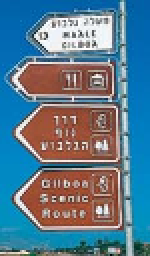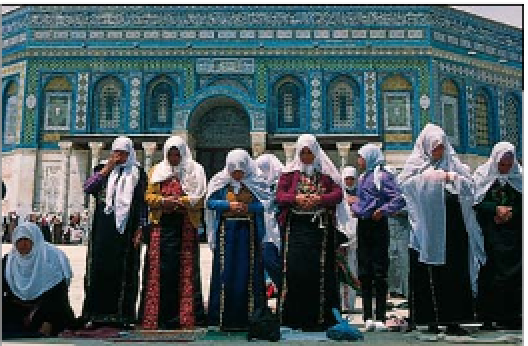Travel Reference
In-Depth Information
DIRECTORY
EMBASSIES AND
CONSULATES
In Israel
UK Embassy
192 Ha-Yarkon Street, Te l Aviv.
Tel
(03) 725 1222.
VISAS FOR EGYPT
Palestinian areas and in
Jordan, however, but Arabs
will make every effort to
communicate with foreigners,
even if it means resorting to
sign language. In
areas frequented by
tourists it is easier to
find English speakers,
although attempts to
speak Arabic will
al
w
ays be welcomed.
Away from the main
A
tourist circuit it can
be much harder to
get your message
across without some
rudimentary grasp
of the language.
If you are entering Sinai
from Israel, you can obtain a
special Sinai Permit that
allows you to stay
for up to 14 days;
this is obtained at
the border and is
free. Bear in mind,
however, that the
Sinai Permit cannot
be changed into a
full visa. Neither
can a full visa for
Egypt be obtained
at the border. If you
plan to visit other
parts of Egypt
beyond Sinai, you
must obtain a visa in advance
from an Egyptian consulate or
embassy in your home country,
o
r
else in Amman, Aqaba, Tel
Aviv or
A
l
www
.britemb.org.il
UK Consulates
19 Nashashibi Street,
Sheikh Jarah, East Jerusalem.
Tel
(02) 541 4100.
l
US Embassy
71 Ha-Yarkon Street, Te l Aviv.
Tel
(03) 519 7575.
l
http:
//telaviv.usembassy.gov
US Consulates
18 Agron Street, West Jerusalem.
Tel
(02) 625 3288.
Israeli road signs
ETIQUETTE
l
17 Nablus Road, East Jerusalem.
Tel
(02) 625 3288.
Israeli society, on the whole,
is not that different from the
West. There are exceptions; in
ultra-Orthodox areas such as
Jerusalem's Mea Shearim and
parts of the Galilee town of
Safed, behaviour and dress
should definitely err on the
side of conservatism. This is
also the case in Arab areas,
both in the Palestinian Autono
A -
mous Territories and in Jordan.
Arab women usually cover
their arms, legs and sometimes
their heads in public, and men
do not wear shorts. Visitors
are not always expected to
cover up in the same way,
but you must be suitably
clothed when visiting certain
public places and any of the
holy sites
(see p300)
.
Intimate physical contact
with a person of the opposite
sex in public is also taboo in
Arab society; Arabic couples
are rarely seen kissing, embrac-
ing or even holding hands.
l
In Jordan
UK Embassy
Damascus Street, Abdoun,
Amman.
Tel
(06) 590 9200.
l
US Embassy
Damascus St, Abdoun, Amman.
Tel
(06) 590 6950.
l
In Egypt
UK Embassy
7 Ahmed Ragheb Street,
Garden City, Cairo.
Tel
(02) 794 0852.
l
US Embassy
5 Latin America Street,
Garden City, Cairo.
Tel
(02) 795 7371.
l
In the UK
Egyptian Consulate
2 Lowndes Street, London SW1.
Tel
(020) 7235 9777.
Eilat.
DUTY-FREE ARTICLES
AND CUSTOMS
The duty-free allowance in
all three countries is 200
cigarettes or 200 grams of
tobacco, a litre of spirits and
two bottles of wine. Valuable
V
electrical objects such as
computers and video cameras
will be entered in passports
by customs officers to prevent
their resale in the country.
LANGUAGE
English is very much a
second language in Israel,
where many immigrants do
not speak Hebrew. All signs
are bilingual and it is rare to
meet someone who doesn't
understand any English at all.
The story is very different in
l
Israeli Embassy
2 Palace Green, London W8.
Tel
(020) 7957 9500.
l
Jordanian Embassy
6 Upper Phillimore Gardens,
London W8.
Tel
(020) 7937 3685.
l
In the US
Egyptian Consulate
1110 2nd Avenue, New York.
Tel
(212) 759 7120.
l
Israeli Embassy
3514 International Drive NW,
Washington DC.
Tel
(202) 364 5500.
l
Jordanian Embassy
3504 International Drive NW,
Washington DC.
Tel
(202) 966 2664.
l
Arab women in customary dress, outside the Dome of the Rock, Jerusalem

























